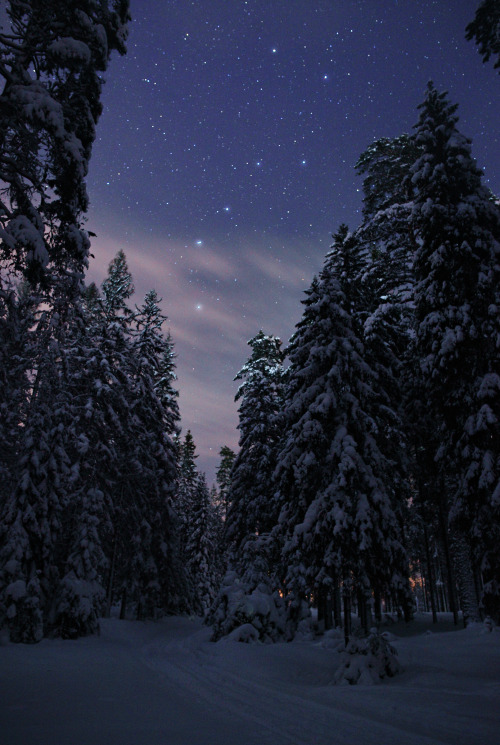Asperitas And Mammatus







Asperitas and Mammatus
Well-defined, wave-like structures in the underside of the cloud; more chaotic and with less horizontal organization than the variety undulatus. Asperitas is characterized by localized waves in the cloud base, either smooth or dappled with smaller features, sometimes descending into sharp points, as if viewing a roughened sea surface from below. Varying levels of illumination and thickness of the cloud can lead to dramatic visual effects.
Occurs mostly with Stratocumulus and Altocumulus
Mammatus is a cellular pattern of pouches hanging underneath the base of a cloud, typically cumulonimbus rainclouds, although they may be attached to other classes of parent clouds.
source | source | images: x, x, x, x, x, x, x
More Posts from Monstrous-mind and Others

🔭🌃🌌

Alnitak Region with the Horse Head and Flame Nebulae
by Warren Keller
🍁🍂🎃🍂🍁🌬🌨






Autumn dressed up in gold, is the richest season of the soul.
🔭🌌☄️🪐

2024 September 8
M31: The Andromeda Galaxy Image Credit: Subaru (NAOJ), Hubble (NASA/ESA), Mayall (NSF); Processing & Copyright: R. Gendler & R. Croman
Explanation: The most distant object easily visible to the unaided eye is M31, the great Andromeda Galaxy. Even at some two and a half million light-years distant, this immense spiral galaxy – spanning over 200,000 light years – is visible, although as a faint, nebulous cloud in the constellation Andromeda. A bright yellow nucleus, dark winding dust lanes, and expansive spiral arms dotted with blue star clusters and red nebulae, are recorded in this stunning telescopic image which combines data from orbiting Hubble with ground-based images from Subaru and Mayall. In only about 5 billion years, the Andromeda galaxy may be even easier to see – as it will likely span the entire night sky – just before it merges with, or passes right by, our Milky Way Galaxy.
∞ Source: apod.nasa.gov/apod/ap240908.html
🌄🍂🍁🎃🍁🍂

🔭🌃🌌🪐🍁🍂⛄

Under the big dipper
by: Mikhail Reva
🍃🍂🍁🎃
![Fall Colors In The White Mountains Of New Hampshire [OC][1600x1067] By: Bckpkrs](https://64.media.tumblr.com/ff891d0eb5e06185fb1760497cd5c5da/58a249b5dcd3e147-6d/s500x750/f45b4249f2d7683c278bac67dda3202a095e71c2.jpg)
Fall colors in the White Mountains of New Hampshire [OC][1600x1067] by: bckpkrs
🔭🌌🪐

Saturn - March 11 2006
Image Credit: NASA/JPL-Caltech/CCI/CICLOPS/Kevin M. Gill
🐈🐅

What's Up - December 2017
What’s Up For December? Geminid and Ursid meteor showers & winter constellations!

This month hosts the best meteor shower of the year and the brightest stars in familiar constellations.

The Geminds peak on the morning of the 14th, and are active from December 4th through the 17th. The peak lasts for a full 24 hours, meaning more worldwide meteor watchers will get to see this spectacle.

Expect to see up to 120 meteors per hour between midnight and 4 a.m. but only from a dark sky. You’ll see fewer after moonrise at 3:30 a.m. local time.

In the southern hemisphere, you won’t see as many, perhaps 10-20 per hour, because the radiant never rises above the horizon.

Take a moment to enjoy the circle of constellations and their brightest stars around Gemini this month.

Find yellow Capella in the constellation Auriga.

Next-going clockwise–at 1 o'clock find Taurus and bright reddish Aldebaran, plus the Pleiades.

At two, familiar Orion, with red Betelguese, blue-white Rigel, and the three famous belt stars in-between the two.

Next comes Leo, and its white lionhearted star, Regulus at 7 o'clock.

Another familiar constellation Ursa Major completes the view at 9 o'clock.

There’s a second meteor shower in December, the Ursids, radiating from Ursa Minor, the Little Dipper. If December 22nd and the morning of December 23rd are clear where you are, have a look at the Little Dipper’s bowl, and you might see about ten meteors per hour. Watch the full What’s Up for December Video:
There are so many sights to see in the sky. To stay informed, subscribe to our What’s Up video series on Facebook. Make sure to follow us on Tumblr for your regular dose of space: http://nasa.tumblr.com.
-
 kochamciepolsko liked this · 6 months ago
kochamciepolsko liked this · 6 months ago -
 lemonlovemeanslove reblogged this · 9 months ago
lemonlovemeanslove reblogged this · 9 months ago -
 exerciseinexposure reblogged this · 1 year ago
exerciseinexposure reblogged this · 1 year ago -
 welcome-to-fernweh reblogged this · 1 year ago
welcome-to-fernweh reblogged this · 1 year ago -
 crucrionnia reblogged this · 1 year ago
crucrionnia reblogged this · 1 year ago -
 vonizcahigers liked this · 1 year ago
vonizcahigers liked this · 1 year ago -
 tears-of-crayons liked this · 1 year ago
tears-of-crayons liked this · 1 year ago -
 palebirdqueen liked this · 1 year ago
palebirdqueen liked this · 1 year ago -
 myyellowblankey reblogged this · 1 year ago
myyellowblankey reblogged this · 1 year ago -
 mostcovetedbird liked this · 1 year ago
mostcovetedbird liked this · 1 year ago -
 poppunkbibliophile reblogged this · 1 year ago
poppunkbibliophile reblogged this · 1 year ago -
 listentothepages reblogged this · 1 year ago
listentothepages reblogged this · 1 year ago -
 eternityengine reblogged this · 1 year ago
eternityengine reblogged this · 1 year ago -
 brazhiggworksubtmind liked this · 1 year ago
brazhiggworksubtmind liked this · 1 year ago -
 trauriges-herz-von-veronika liked this · 1 year ago
trauriges-herz-von-veronika liked this · 1 year ago -
 crucrionnia reblogged this · 1 year ago
crucrionnia reblogged this · 1 year ago -
 jimmoworld liked this · 1 year ago
jimmoworld liked this · 1 year ago -
 ekkuz reblogged this · 1 year ago
ekkuz reblogged this · 1 year ago -
 ekkuz liked this · 1 year ago
ekkuz liked this · 1 year ago -
 legendaryhologramavenue liked this · 1 year ago
legendaryhologramavenue liked this · 1 year ago -
 bohobedlove liked this · 1 year ago
bohobedlove liked this · 1 year ago -
 lostandyearning liked this · 2 years ago
lostandyearning liked this · 2 years ago -
 sublevacionimaginada reblogged this · 2 years ago
sublevacionimaginada reblogged this · 2 years ago -
 sublevacionimaginada liked this · 2 years ago
sublevacionimaginada liked this · 2 years ago
My ambition is handicapped by laziness. -C. Bukowski Me gustan las personas desesperadas con mentes rotas y destinos rotos. Están llenos de sorpresas y explosiones. -C. Bukowski. I love cats. Born in the early 80's, raised in the 90's. I like Nature, Autumn, books, landscapes, cold days, cloudy Windy days, space, Science, Paleontology, Biology, Astronomy, History, Social Sciences, Drawing, spending the night watching at the stars, Rick & Morty. I'm a lazy ass.
222 posts